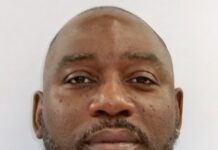 Historically Black Morgan State University in Baltimore has reached an agreement with the Baltimore City Department of Real Estate to purchase the former Lake Clifton High School property in East Baltimore. The university has long-term plans to develop a new satellite campus on the site.
Historically Black Morgan State University in Baltimore has reached an agreement with the Baltimore City Department of Real Estate to purchase the former Lake Clifton High School property in East Baltimore. The university has long-term plans to develop a new satellite campus on the site.
The high school opened in 1971 and was designed to educate up to 4,800 students. It closed in 2003 due to declining enrollments in the Baltimore public school system.
 As part of the 21st Century Schools Initiative, Baltimore City Schools are required to surplus 26 school buildings and offered several properties for sale. Under the agreement, the university will purchase an approximately 59-acre parcel that includes the former Lake Clifton High School, another 14 acres of adjacent property south and east of the school, and the historic Valve House. Built between 1887 and 1888, the Valve House was built to house the machinery used in the operation of Lake Clifton, which was once part of the city’s water supply. It is listed on the National Register of Historic Places.
As part of the 21st Century Schools Initiative, Baltimore City Schools are required to surplus 26 school buildings and offered several properties for sale. Under the agreement, the university will purchase an approximately 59-acre parcel that includes the former Lake Clifton High School, another 14 acres of adjacent property south and east of the school, and the historic Valve House. Built between 1887 and 1888, the Valve House was built to house the machinery used in the operation of Lake Clifton, which was once part of the city’s water supply. It is listed on the National Register of Historic Places.
Under the proposed agreement, Morgan State commits to redeveloping the property over a 15-to-20-year period, with a projected total minimum investment of $200 million. The university will pay the city $93,652.80 for the parcel, which will cover the balance of the unpaid bond debt service owed to the State of Maryland. Once the property sale in finalized, the university will seek to realize its long-term vision for the site, which includes establishing a satellite campus that would include academic buildings, athletic fields, a wellness center, mixed-use housing, and other amenities.
“This agreement is truly an important step in what will be a monumental advancement in Morgan’s history,” said David K. Wilson, president of Morgan State University. “Through the acquisition of this important property, we are laying the foundation for a brighter future of opportunity. With support from the local community and the City of Baltimore, we will be able to not only expand our footprint and our access to the communities we serve but also acquire a new site that will play a vital role in the education of our students while also driving local investment.”











Here’s another concrete example of higher education administrative malfeasance via the titular head David Wilson, Don-Terry Veal, Kevin Banks, Willie E. May, the Maryland Legislative Black Caucus, and especially the Morgan State University Board of Regents with this highly questionable deal. This deal is equivalent to higher education money laundering of the highest order.
Let’s examine a few specifics: 1) How long was the dilapidated property “on the market”? 2) What is the connective linkage between the city of Baltimore real estate department personnel and David Wilson or any of those other Morgan State minions? In other words, there is some sort social organizational linkage between all involved parties., 3) Why would Morgan State even consider in WASTING university finite fiscal resources on a building from the early 19th century which will require millions of dollars to refurbish in order to pass a basic city code inspection? 4) What’s the probability there’s some sort of linkage between Baltimore City Department of Real Estate Bill Henry and David Wilson? and 5) Did David Wilson have faculty and MBA students from the Earl G. Graves School of Business and Management (SBM) analyze this deal to determine if was a good investment? If no, why not? If Yes, where can the public access this report?
In close, this underhand deal (in my opinion) will be similar to the land the Earl G. Graves School of Business and Management (SBM) sits on in which Morgan State leased from a local old White Baltimore family. Will native born Black Americans from Baltimore receive the majority of the contracts with this projects? All the while, the main campus is woefully lacking in literally every area from faculty and staff pay, tenure, and over campus physical security posture. For those who dissent, I challenge you to provide verified evidence discounting my claims. Don’t forget that the quintessential Alabama country bumpkin David Wilson aspires for Morgan State not to be known as an HBCU. He’s not the only one with these Stockholm Syndrome ideology.
Morgan State University has consistently failed to protect its students on/near off-campus (see any Cleary Report) on its main campus. Yet, do you think they will have the campus security manpower and physical security apparatus to adequately protect an ‘East Baltimore satellite campus”. Really. Something is inherently wrong with this decision making.